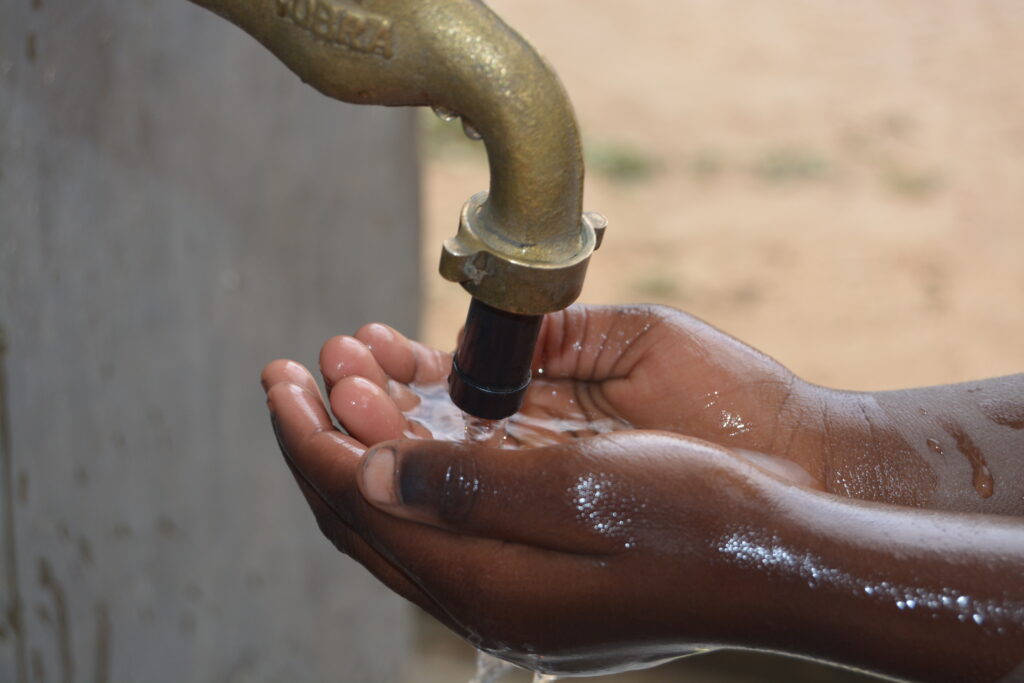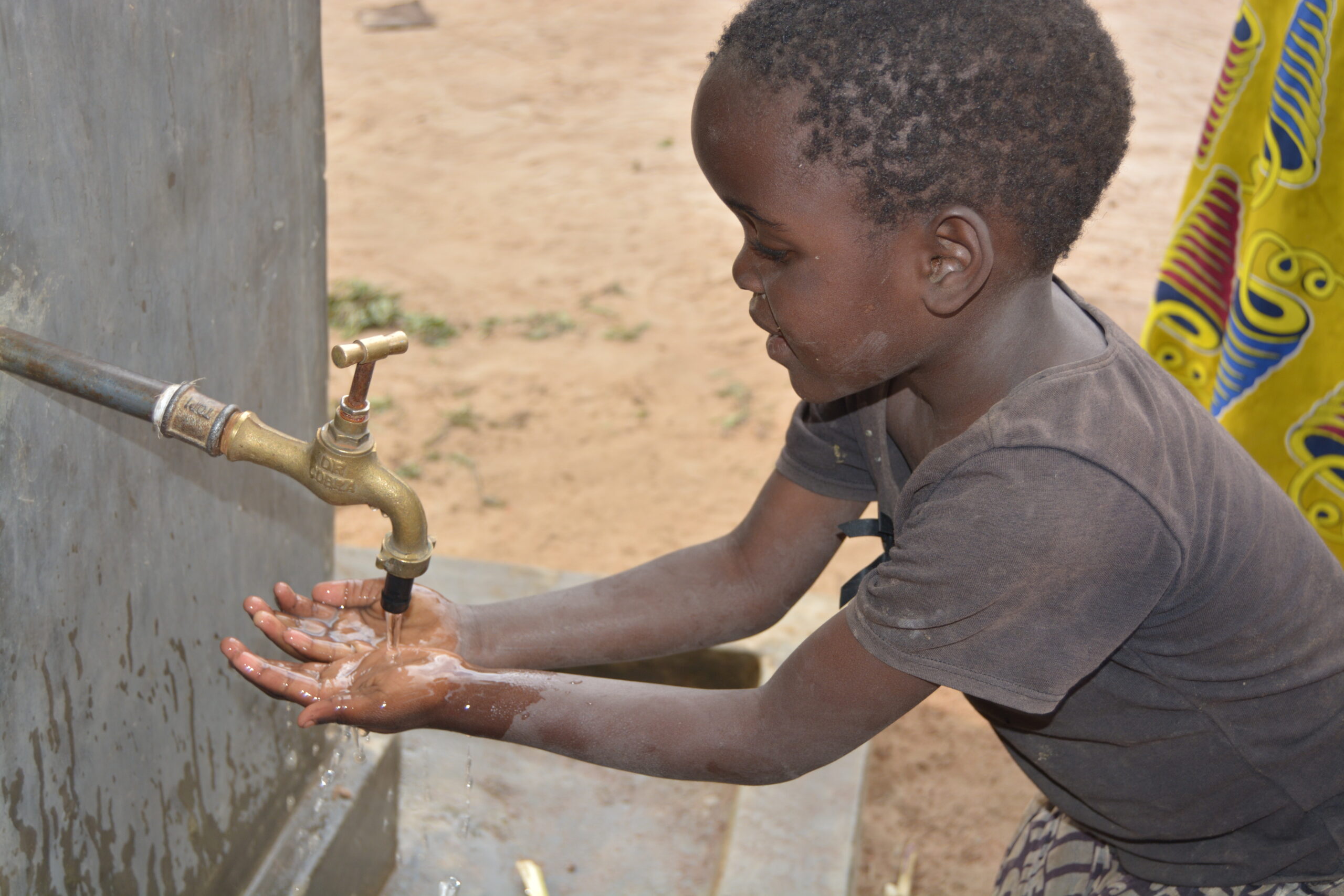World Health Day: Water and hygiene in Malawi
Water, you use it every day to drink, cook and keep clean by simply turning on a tap. You don’t have to carry a 20L bucket of water for 6km (about 8,000 steps) to collect water. This World Health Day (7th April), we want to raise awareness of the impact of water and hygiene access on health in Malawi.
Carrying heavy water cannisters which weigh about 20kg for such long distances on a daily basis causes pain and injuries on women and girls who go in search of clean water. Women are typically primary caregivers which means they must take care of their family members who fall sick, losing time for education and employment.
Preschool health
About 75% of preschools in Malawi lack appropriate facilities for water, sanitation and hygiene. Without clean water and toilets, waterborne diseases spread quickly. Frequent bouts of diarrhoea and a poor diet cause high incidences of stunting in under 5s (42%, UNICEF 2018) in Malawi. As a result, many of these children suffer from poor cognitive development and don’t perform as well at school, impacting their educational performance.
It is vital to intervene in the early years of a child’s life to counter the long-term growth effects of malnutrition and poor sanitation. We incorporate hygiene education into our preschool intervention in addition to handwashing stations and child friendly toilets to improve the health of those attending the preschool. Additionally, water access is required to develop kitchen gardens to improve nutritional intake for the children.

Climate change
Malawi has been suffering from a Cholera outbreak, the consequences of this have been further exacerbated by Storm Freddy, a deadly and destructive cyclone. It has taken the lives of over 400 people with nearly 500,000 displaced from their homes. The impact of the storm has also exacerbated access to clean water which has led an increase in waterborne diseases.
Due to climate change, flooding and extreme weather events are on the rise. An increase in unclean water and destruction of facilities in poor rural communities in Malawi will lead to an increase in health issues. To help build resilience to climate change, we train and mentor entrepreneurs to repair and maintain community water points to improve pump functionality. This highly effective and sustainable approach improves access to reliable water for vulnerable communities, providing basic requirements for hygiene and health. We also work with local Women’s Task Forces to add hygiene and nutrition to their peer-to-peer learning interventions to promote healthy practices in surrounding communities.
How can you help someone in rural Malawi improve their health?
Raise awareness of Pump Aid’s work through social media
Make a donation today
Sign up to our newsletter to stay updated on our work






